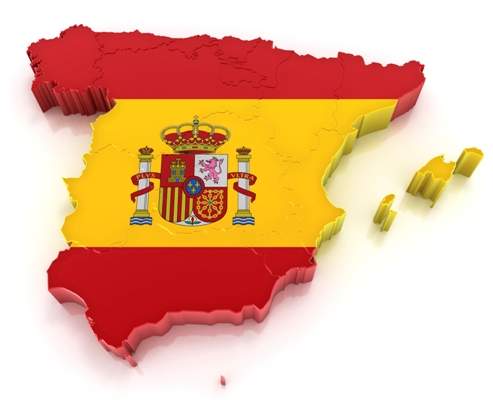
Fears that potential Catalan independence will cripple financial markets in Spain are now receding.
Research conducted by Private Banker International indicates that clients’ wealth will survive any adverse economic impact – even if Catalonia breaks up from Spain in upcoming regional elections scheduled for 21 December.
This comes after Catalonia-a region that accounts for 20% of Spanish GDP- held a disputed referendum on 1 October 2017. While turnout was significantly low at 42%, more than 90% overwhelmingly voted for Catalonia to secede from Spain.
The experts’ optimism marks a change in tone immediately after the result was announced.
Analysts at Dutch banking giant ING warned after the result: “There is only one step between worries and precautionary saving and if about two-thirds of all consumers decide to moderate consumption then this would dent private demand. If worries turn into panic then there could also be a run on the banks and capital controls.”
But now experts think market impact will be quite limited, even if Catalonia gains independence.
Geopolitical Noise
Kleinwort Hambros’ senior markets strategist, Fahad Kamal, says: “Geopolitics tends not to stick. It is very short-term and very noisy. “
In Kamal’s opinion, the Catalian crisis is not going to undermine Europe.
Kamal notes that a geopolitical risk may even present a buying opportunity.
This view was somewhat echoed by UBS’s chief investment officer in Spain, Roberto Ruiz Scholtes. “We do not see changes in asset allocation. Only the most nervous clients are transferring into more liquid assets like cash in other Spanish regions. “
However, Scholtes warns that consumer and corporate confidence could weaken if secessionist parties win the majority of votes.
“It could weaken deals in the real estate market and in corporate M&A,” he says.
Scholtes argues that whether there are short-term ramifications for the Spanish banking system or not, either way the country will not enter recession.
Despite Kamal’s optimism that markets will remain robust, he warns clients to avoid investing into Spanish bonds.
“[In the] worst case scenario you want to make sure you are not overly exposed to Spanish government debt because as we see it for 2012 and 2013 there was a big spike in yields,” he says referring to the difference between the 10- year Spanish Bond and the German Bund.
Investors typically use the 10-year German bund as a bellwether to determine the health of other sovereign bonds. The bigger the spread relative to the safe German bund, the greater compensation investors require to hold other sovereign debt, implying a higher degree of risk.
The spread between the 10- year Spanish bond, and the 10-year German Bund is 1.42% as of 4 December. Kamal says this number could rise to about 5-6% should Catalan independence occur.
“If we were to see the situation deteriorate which is not what we expect, then the Spanish sovereign bonds could come under pressure relative to other European bonds,” says UBS Wealth Management economist, Dean Turner.
Scholtes, however, highlights a possible increase in discretionary mandates in Spain as a result of the Catalan crisis. He said this may happen in the short-term as people move their assets to other parts of Spain, and may temporarily seek more guidance.
Looking ahead
“We see a 2 in 3 probability that secessionist parties will win this election. And we see a more than even probability that the [Popular Unity Candidacy CUP Party] will become the kingmaker.
“This won’t help to resolve this political uncertainty. There is a very low probability that the crisis is really solved. This means political risk will remain high in Spain and this could impact [banks profitability],” Scholtes says.
Kamal says: “I would advise clients who have already invested in Spain, to stay the course.
“Short-term geopolitical noise rather than being a reason to run is often a reason to enter. It is often an opportunity to pick up undervalued assets.” According to Kamal, a break-up of Spain and Catalonia is extremely unlikely because “nobody [external] is giving this vote any legitimacy, “nor the EU nor the UN.”
Kamal says because Spanish equities are 5% undervalued, he expects clients to invest in this asset class and avoid Spanish bonds.
A poll published by CIS research centre on 4 December indicates pro-independence parties to be ahead of constitutionalist parties, but they are still projected to lose the 68-seat threshold required for a party to win a parliamentary majority.
Before the Spanish government imposed direct rule over Catalonia by triggering Article 155, PdeCat led by Carles Puigdemont had been in coalition with the Catalan Republican Left (ERC) party.
Last election, the PRC party had to play kingmaker in order for parties to form a parliamentary majority. While all remain committed to independence, PdeCat is not open to dialogue with Madrid, while the other parties currently prefer this approach.
Key banks such as Banco Sabadell and Caixa Bank have shifted their headquarters in the days following the vote.
This has not led to a shift in deposits to safer assets, and the wealth remains in Spain, which will still be subject to EU rules, even if Catalonia does leave.
So long as high net worth clients avoid investing into Spanish sovereign bonds, their wealth should largely remain unscathed.
As Kamal says: “Diversification is one of the few free lunches one gets in finance.”
In the case of the Catalan crisis, as always, clients are advised to remain diversified in a range of assets across different geographies. A break-up of Catalonia, if it happens at all, will be no Brexit. The buying opportunities could even surpass the short-term political noise.







